It’s amazing the impact the arts has on a community. From positive economic growth to entertainment options on a Friday night out - it’s an industry that continues to thrive and build meaningful experiences in many ways. As of 2018, the performing arts industry employs almost 5 million people across the United States with numbers continuing to grow. It’s a booming industry with so many opportunities waiting for you to become involved.
If pursuing a career in the performing arts is something you are passionate about, there are so many opportunities waiting for you to explore that you may not have considered before. This three-part blog series will help introduce you to some career possibilities in creative, administrative/arts management, and production fields.
This post focuses on production. These are the individuals responsible for the technical aspects of a particular product. It could be someone who operates the sound board for a show or be the person who connects the creative and administrative staff during the rehearsal and performance process of a work. Being part of a production team allows you to contribute a particular skill set you have learned to the final product of a performance. Read our other posts about creative careers in the performing arts and administrative careers in the performing arts.
Production
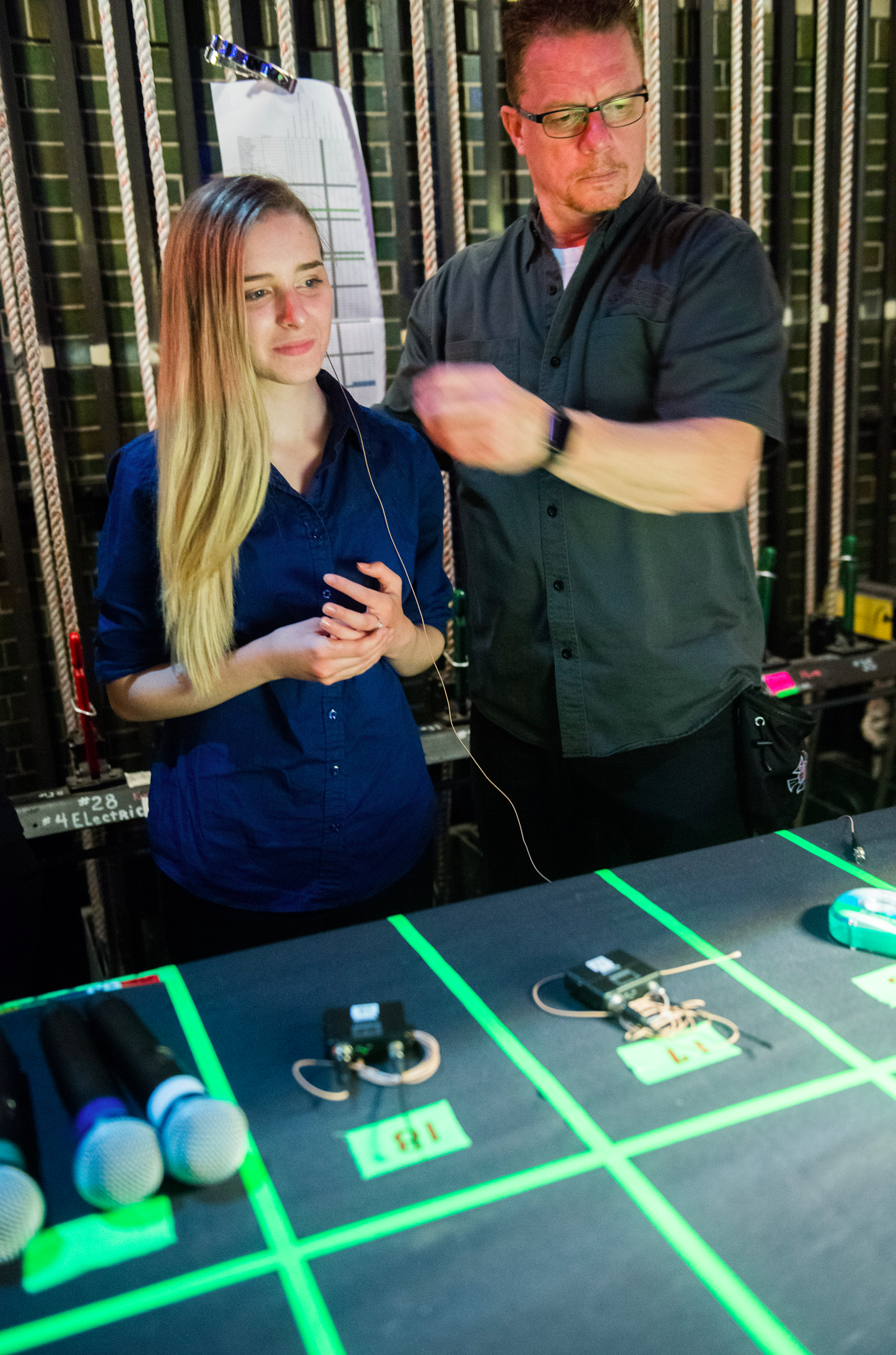
Terry McTaggart (Connor Palace Staffman) assists
a Dazzle Award participant with their wireless
microphone. Photo Credit: Ken Blaze
Producer – The producer assembles and supervises the creative and administrative teams that stage a production. The producer oversees financial and managerial decisions.
Stage Manager – The stage manager serves as an intermediary between the creative and administrative teams. The stage manager works closely with the director, actors, playwrights, designers and technicians to ensure a production’s smooth execution in rehearsal and performance or to help a show develop their stage direction.
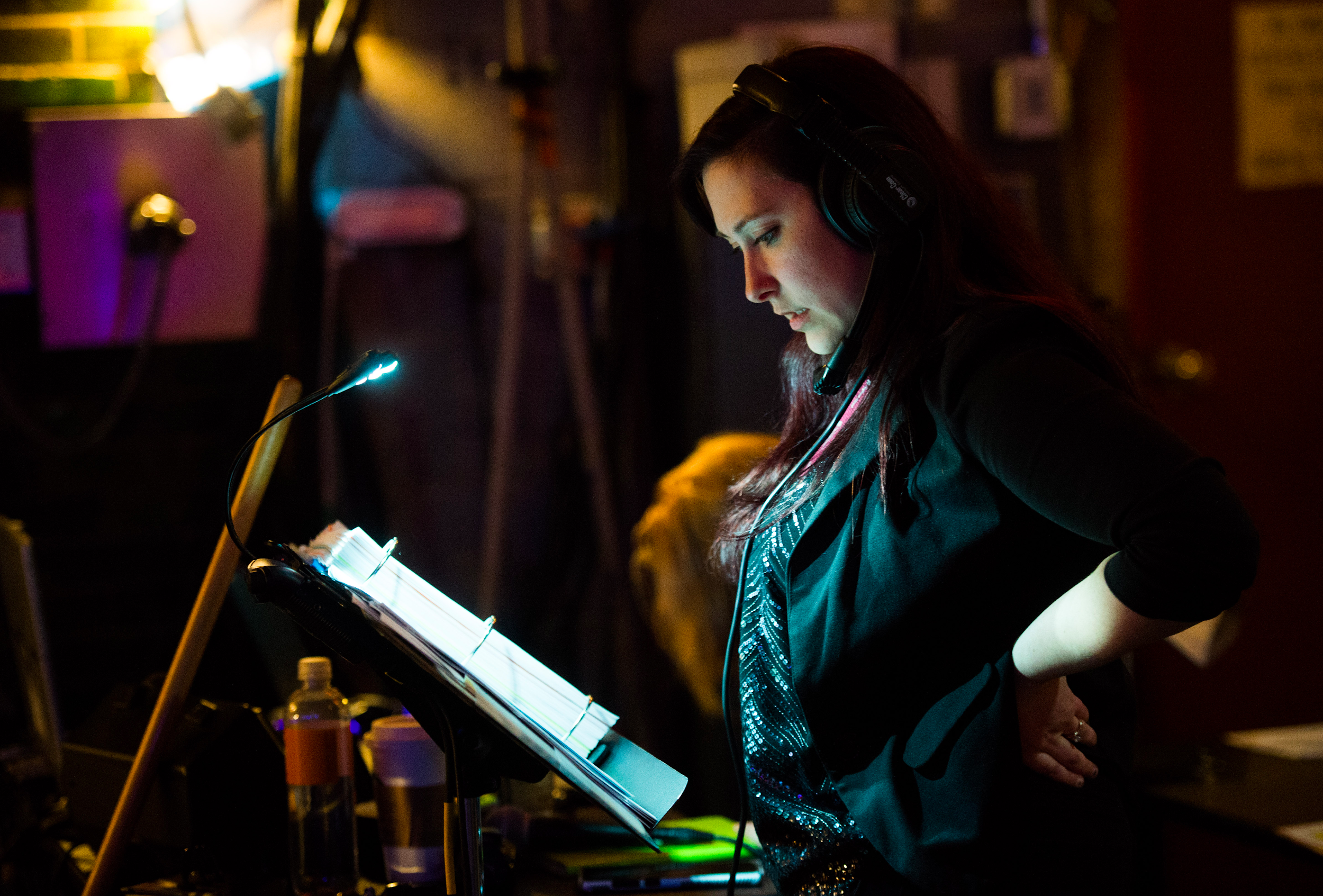
Julie Wagner (Education Programs Coordinator) stage
managing the Dazzle Awards. Photo Credit: Ken Blaze
Stage Crew – The stage crew carries out the technical elements of a production. The crew consists of carpenters who build the set and handle scene changes, electricians who hang and focus lights, and artisans who make props.
- Carpenter- Deals with scenic units and helps build the set for a show.
- Props - Works with property items, or anything handled by an actor on-stage. They also take care of keeping the stage space clean (sweeping and mopping) and repair props as needed.
- Electrician - Runs electrical equipment in the auditorium. They also operate the follow spots and house light.
- Sound Tech - Runs the sound board, handles microphones, and works with the sound designer. If there is no sound designer of sound engineer the house sound tech will act as such. Also controls all monitor speakers so artist can hear themselves onstage.
- Video/Projectionist - Operates projectors for films, presentations, and any other digital media used on stage.
- Riggers - Help hang the scenery above the stage from the grid or architectural beams using chain motor.
- Flymen - A fly system is how suspended lighting and scenery is moved over the stage. The flymen helps to maintain the fly system for a show and operates moving scenery during a performance.
- Loaders/Pushers - In charge of unloading and loading trucks and separating items by department once off the truck.
Set Construction – The set designer works with carpenters, painters and welders to build the scenery on stage.
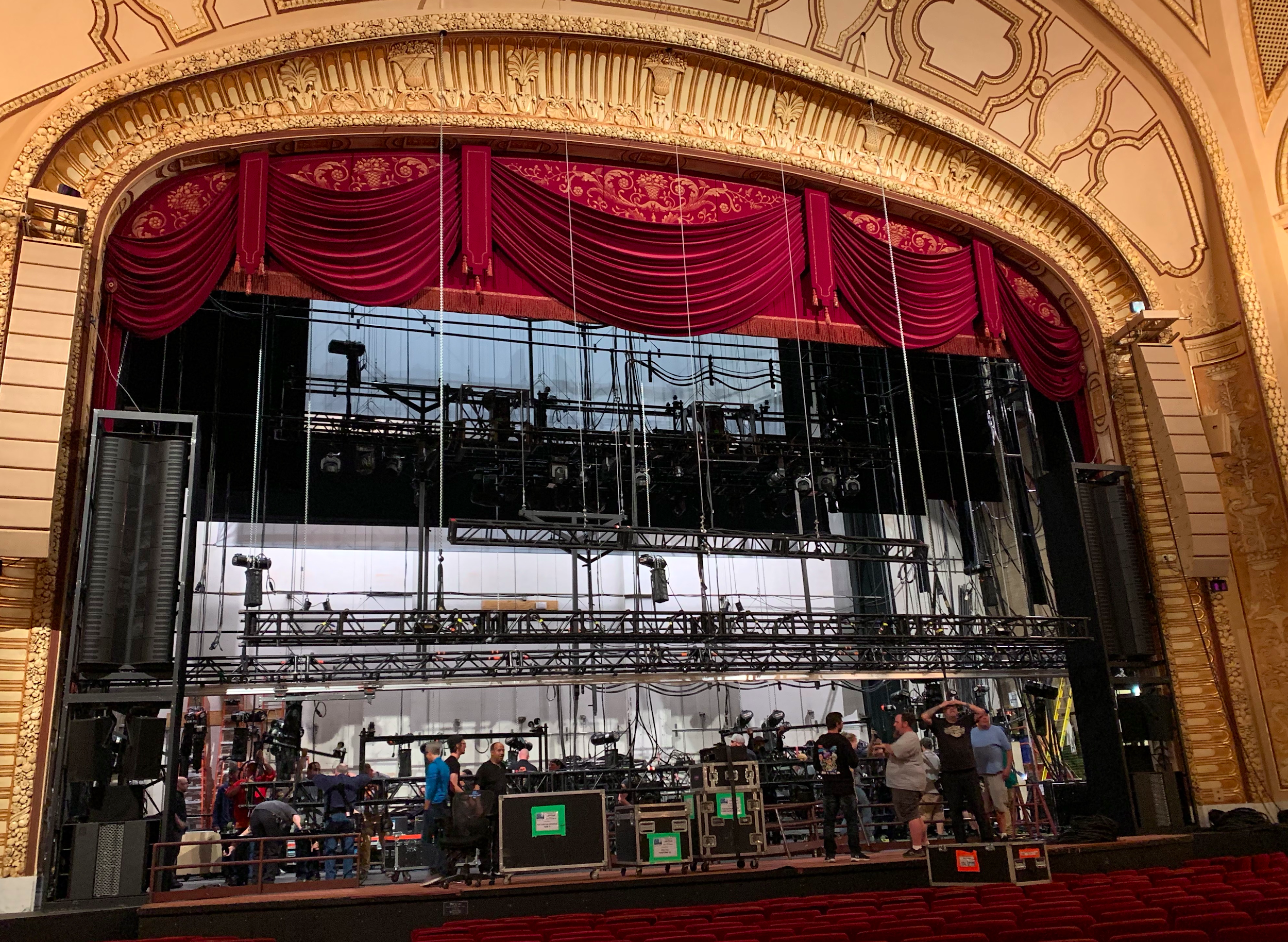
Load-in of Dear Evan Hansen
Sound Engineer – The sound designer creates the auditory world of the production, and the sound engineers runs sound cues during rehearsals and performance. The sound engineer works closely with the sound designer to make sure that no one instrument or microphone is overpowering other aspects of the sound design.
Technical Management – The Technical Director/Production Manager supervises the stage crew as they carry out the designers’ plans for the set, lights, props, costumes and sound.
Wardrobe – The wardrobe team works with the costume designer to create and maintain all clothing worn by performers. The tailor measures the performers and fits the costumes, the buyer acquires fabric and material to fashion costumes, and the draper handles costume construction.
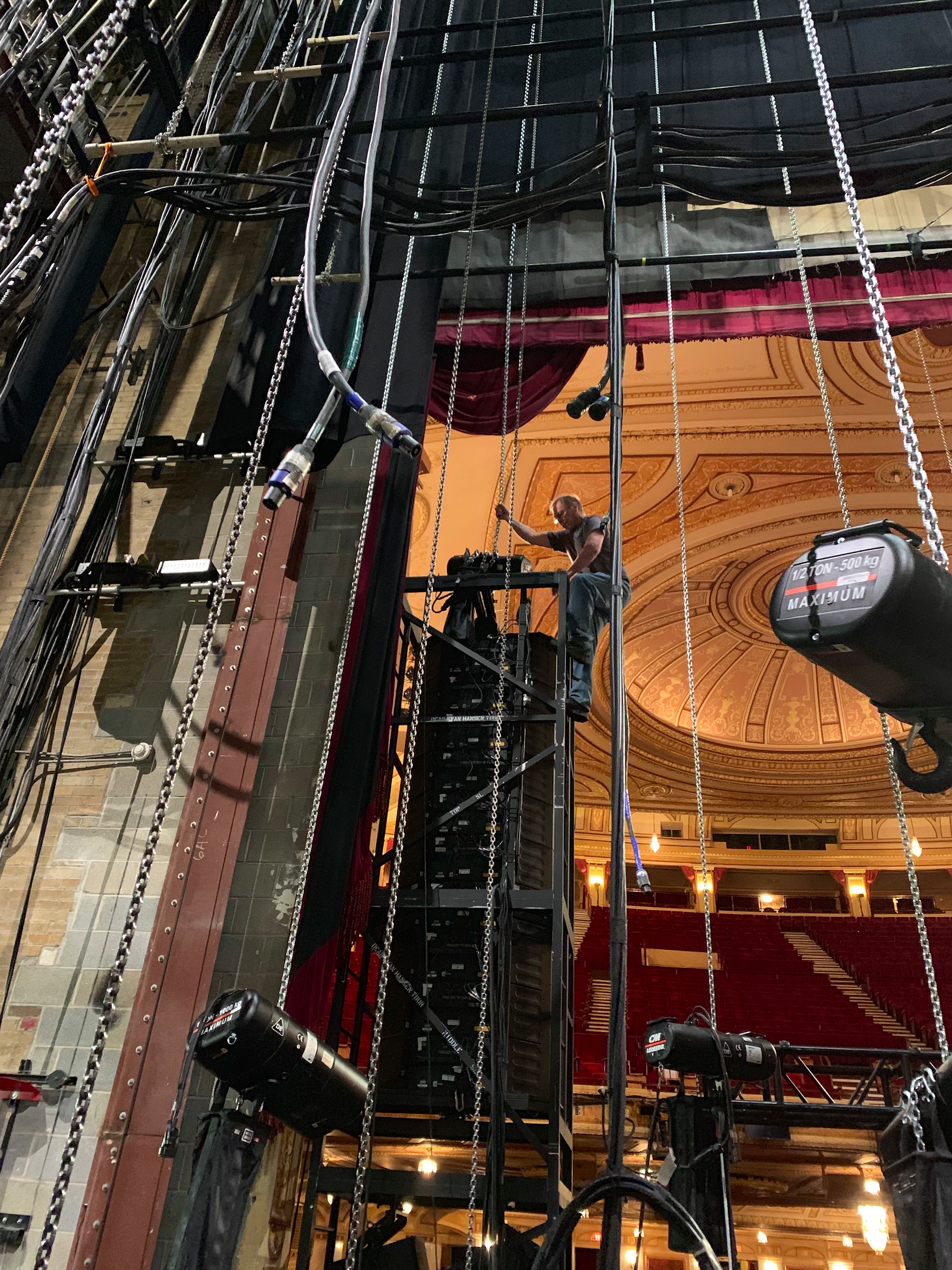
Load-In of Dear Evan Hansen
How Do I Get Involved?
After reading all the possible ways to be part of the arts, you might be wondering what you should do next? Below are a few programs at Playhouse Square that can help!
Broadway Summer Camp - Playhouse Square’s annual Broadway Summer Camp for high school students - incoming freshman through outgoing seniors (typically ages 14-18) - is a one week intensive focusing on the triple threat of musical theater – acting, singing and dancing.
Careers at Playhouse Square - Check out the current job and internship openings at Playhouse Square.
College Open House - Playhouse Square’s College Open House is a free non-ticketed event featuring Ohio colleges/universities with degrees in musical theater, theater administration, technical theater, and performance specialties. This event gives students the opportunity to connect with recruiters and gather application and audition information.
High School Senior Project Program - Over the course of two weeks, students have the opportunity to learn about the operation of both Playhouse Square and Cleveland Play House by attending meetings, learning about our performance spaces, and participating in department activities. Learn more about the High School Senior Project Program.
Launch - Artists, collectives, and companies can take residency at Playhouse Square through the Launch program.
Staging Success Career Fair - ‘Staging Success’ is a one day event geared towards networking for early career opportunities and internships in arts management, technical/production, film/video, and stage management. Meet with producers of national tours, production houses, lighting & sound companies, and more! Check out the Staging Success Career Fair.
Volunteer - Being a volunteer is a great way to be involved with the arts without making it a full-time commitment. Learn more about becoming a volunteer at Playhouse Square.
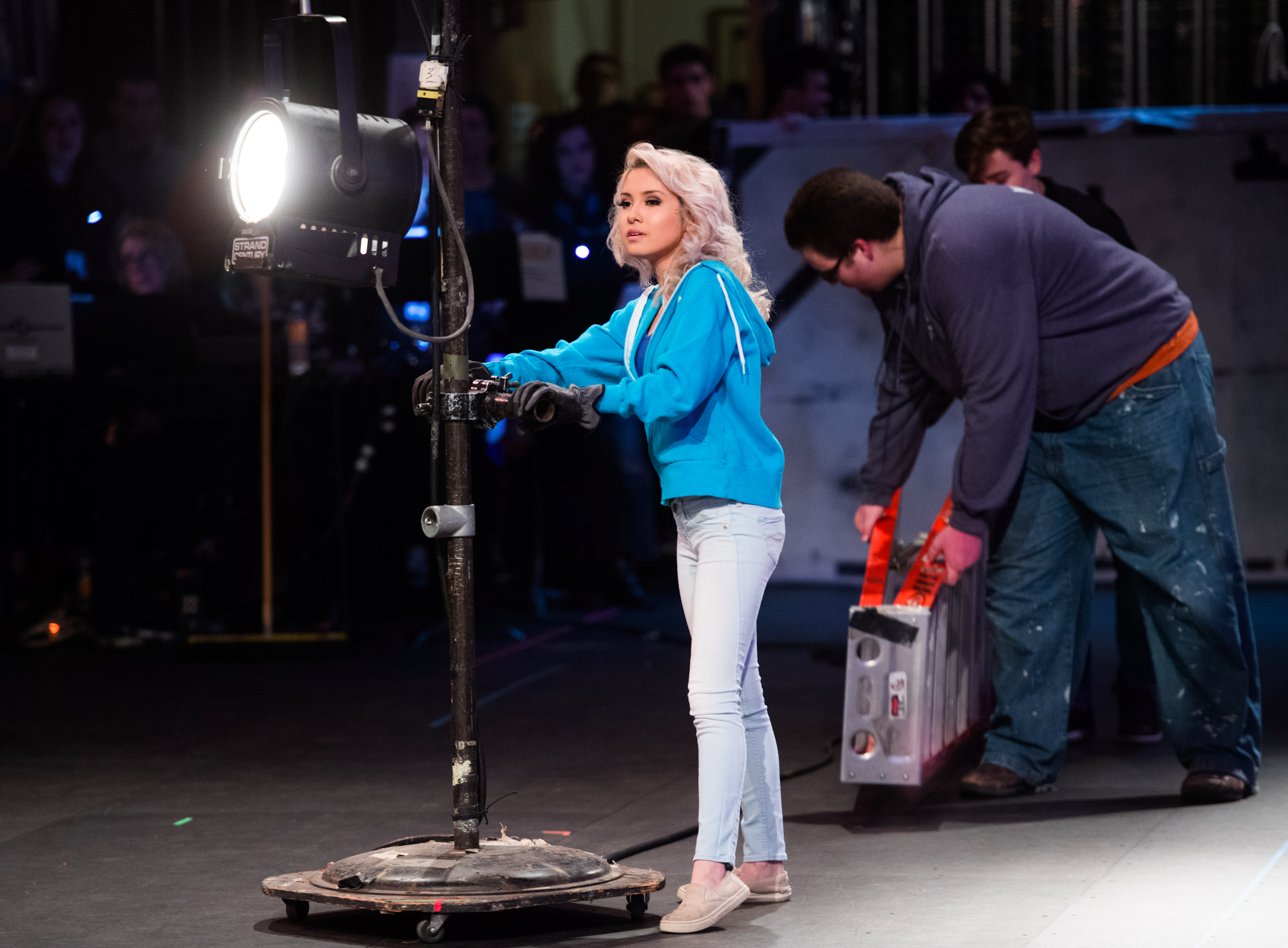
A Dazzle Award student operates lights for the
awards ceremony. Photo Credit: Ken Blaze